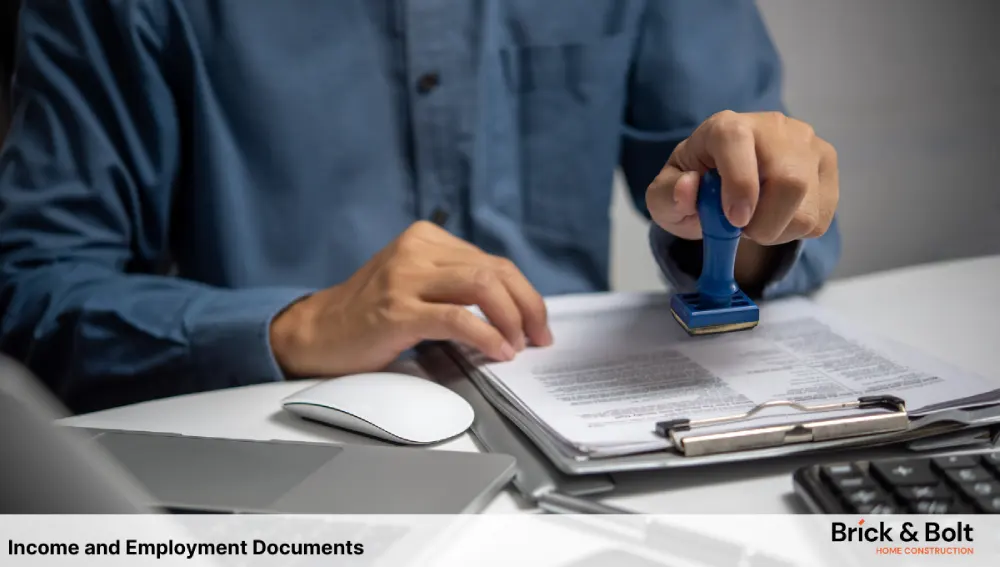With all the significant documents availing a home loan is the simplest task. No matter whether you are planning to buy or construct the house, below is the list of mandatory documents that you should have.
Therefore, you must pay attention to these documents when you apply for a home loan. For a common man, buying or constructing a new house is probably like beginning a new phase of life. In order to fulfill your dream, you must fit the eligibility criteria that can be verified with the following documentations.
Documents Required for Home Loan From Builder
Ensure that you have the following documents to fulfill the dream of constructing your new house.
KYC Documents
KYC is proof of customer identity verified by any financial institutions while applying for a home loan to minimize the illegal activities. Since 2004, the Reserve Bank of India has established a rule that filling out the KYC is compulsory.
Proof of Identity
To confirm the identity of a homeowner or builder, it is essential to submit any one of the following documents: Driver’s license/ PAN/ Voter ID card/ Passport. It is a crucial proof to verify your identity and creditworthiness before loan sanctioning.
Proof of Address
Provide a recent copy of the electricity bill/ water bill/ telephone bill/ piped gas bill, or else driving license/ Aadhar card/ copy of your passport. The purpose of this document is to verify the current address of the builder.
Property Documents
A proof of property document is mandatory to submit at the bank side. It certifies the property’s legal ownership and authenticity to avoid any fraudulent activities taking place.
Sale Agreement or Allotment Letter from the Builder
A sale agreement or allotment letter is a crucial legal document to be submitted by the builder when buying a new property via a bank loan. It acts as a provisional document to hold your place until the final settlement is made.
Approved Building Plan and Layout
Not all the building plans will be accepted to provide a home construction loan. Some plans can be approved and some not. Based on your construction type, the lenders will decide it.
So that you need to submit the essentials, such as the builder’s registered development agreement, Approved plan copy (e.g., Blueprint Xerox), and Conveyance Deed (for your new property or house).
No Objection Certificate (NOC) from Relevant Authorities
No objection certificate is similar to a permission statement ensuring that the property is legally sold to the owner aligned with regulations.
Income and Employment Documents

The proof of your income denotes that you are eligible enough to repay the loan amount within the estimated time.
Salary Slips for the Past Few Months
The applicant has to provide the bank statements of the last six months (with the statement of salary account) and salary slips of the past three months from their current working company. It will guarantee that your income is stable and you can repay the loan amount on a specified date.
Income Tax Returns (ITRs)
Financial institutions typically ask for the last 2 to 3 years of ITRs (Income Tax returns) when you apply for a home loan. It is evidence of the borrower’s financial stability and repayment capacity.
Proof of Business Ownership (If self-employed)
Self-employed entrepreneurs and business owners ensure that they have the below listed comprehensive documents for a home loan:
- Industry margin
- Average bank Balance
- Rental income – cash credit or account credit
- Liquid income program for low ITR filed
- Repayment track record
- Gross turnover receipts
Loan-Specific Documents
Along with the aforementioned documents, the builder should have the following proofs while applying for a home loan:
- Loan application form
- 3 passport size photographs
- Passbook for last 6 months or bank account statement
- Challans as proof of advance income tax payment (only for self-employed people)
- Assessment order copies for the past 3 years or IT returns (for self-employed businessmen)
- Form 16 / IT returns for the last 2 to 3 financial years (for salaried individuals)
Agreement Between Builder and Buyer
BBA (Builder Buyer Agreement) is a legal document that needs to be signed by both parties. This contract specifies the conditions, modalities and clauses between the prospective buyer and real estate builder. It includes the project delivery date, transfer process, annexures, approvals, flat layouts, terms and conditions of sale, etc.
Conclusion
Applying for a home loan is a far better choice than burning your personal savings on construction. If your income or financial stability is smooth enough with a good CIBIL score, you can use the loan opportunity at the best possible interest rates. Understanding the Documents Required For Home Loan can help streamline the application process and increase your chances of approval.
FAQs
1. What documents are required for a builder project loan?
The list of documents required to be submitted for a builder project loan includes a property tax receipt, Conveyance Deed (for new property), share certificate, occupancy certificate, approved plan copy, and registered development agreement of the builder.
2. What are the legal documents for a home loan?
These are the key list of documents for a home loan: Voter ID, passport copy, Aadhar card or any other government-issued proof. Salaried applicants need to submit bank statements and salary slips to verify their income stability. The documents required for a legal opinion include an approved building plan, sale deed, property tax receipts, and title deed.
3. Can I get a home loan for an under-construction property?
For an under-construction property, a home loan is disbursed in tranches. The payment is released in different portions when the builder demands. However, some financial institutions will only charge EMIs for the amount disbursed.
4. Who is eligible for a house-building loan?
The applicant should be aged between 21 – 65 years. If he/she is a salaried person, they should earn a minimum of 10,000 p.m. For a self-employed business person, the minimum business income should be 2 lac p.a.

